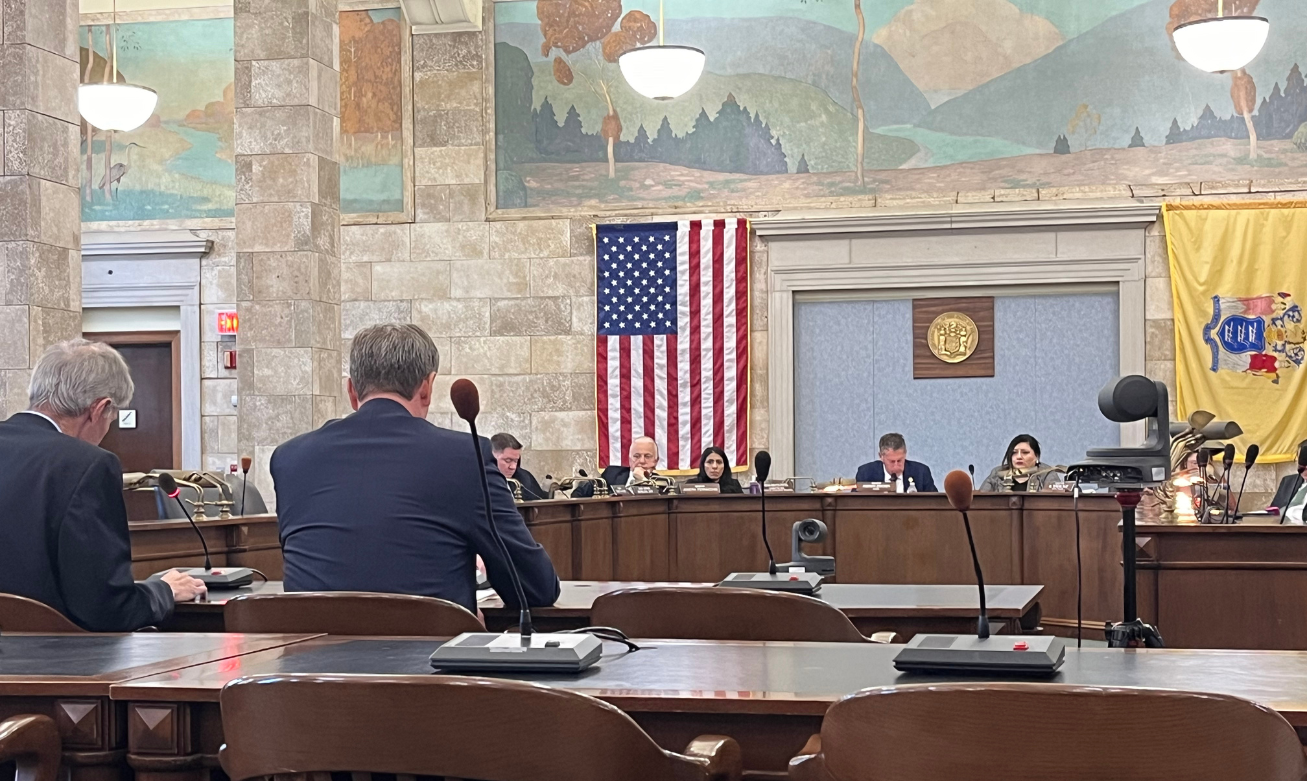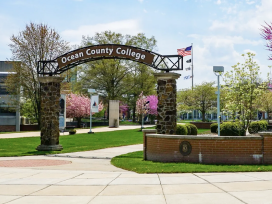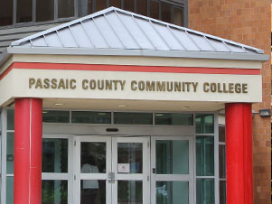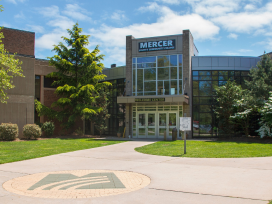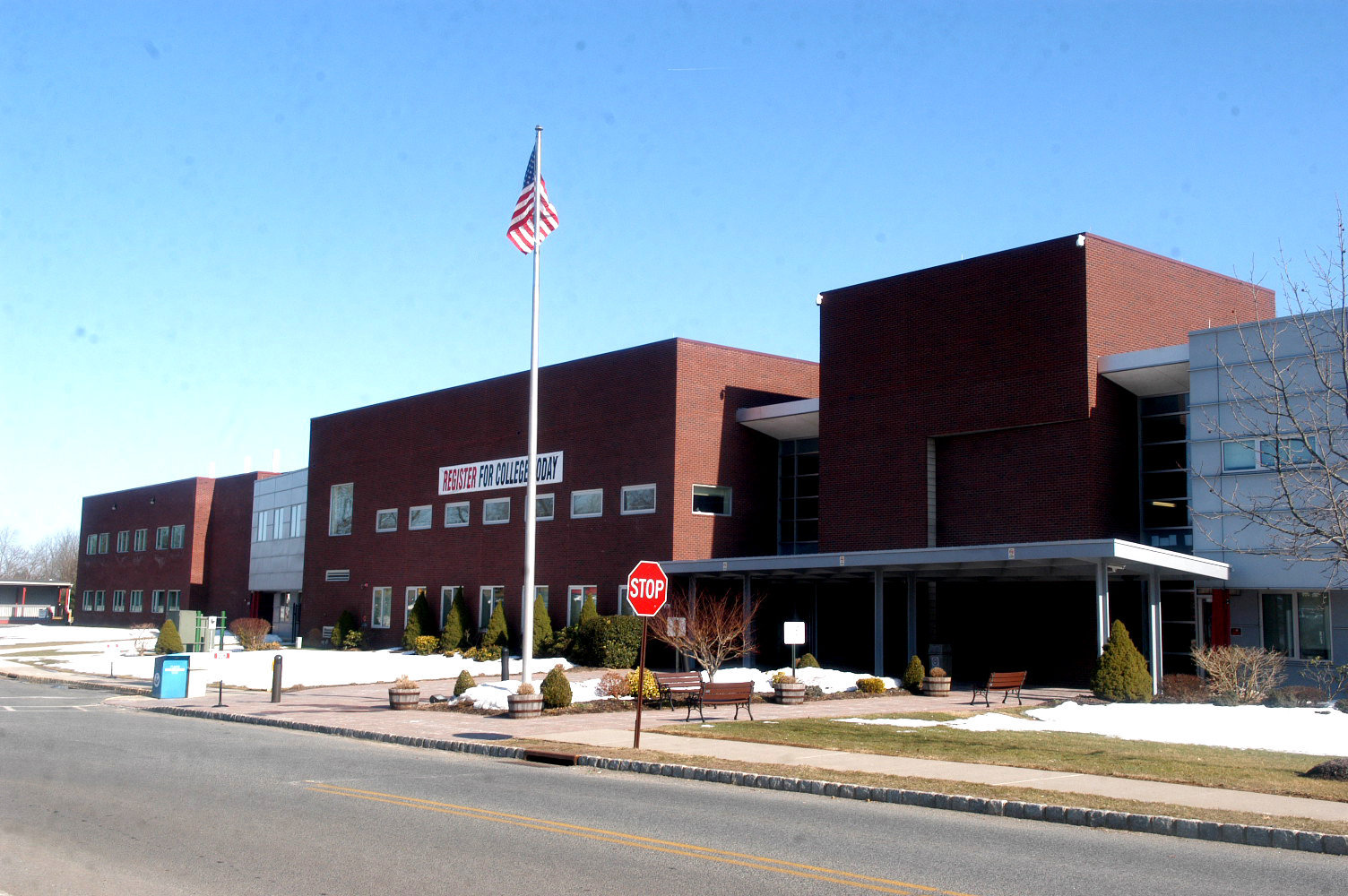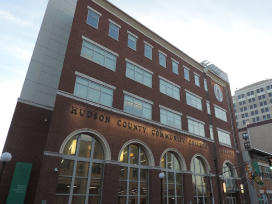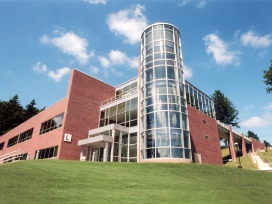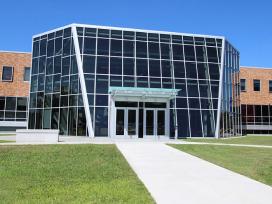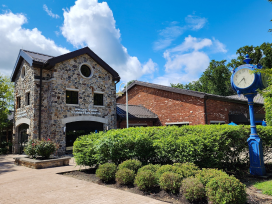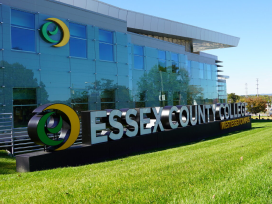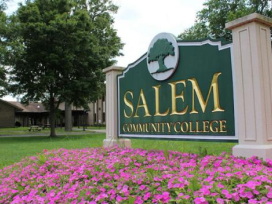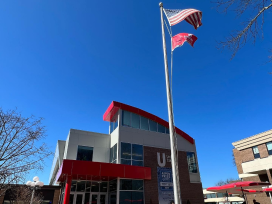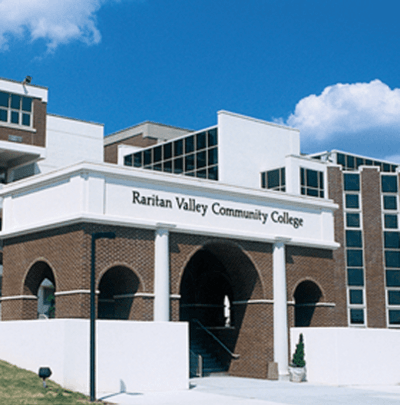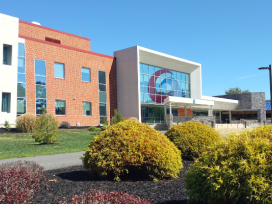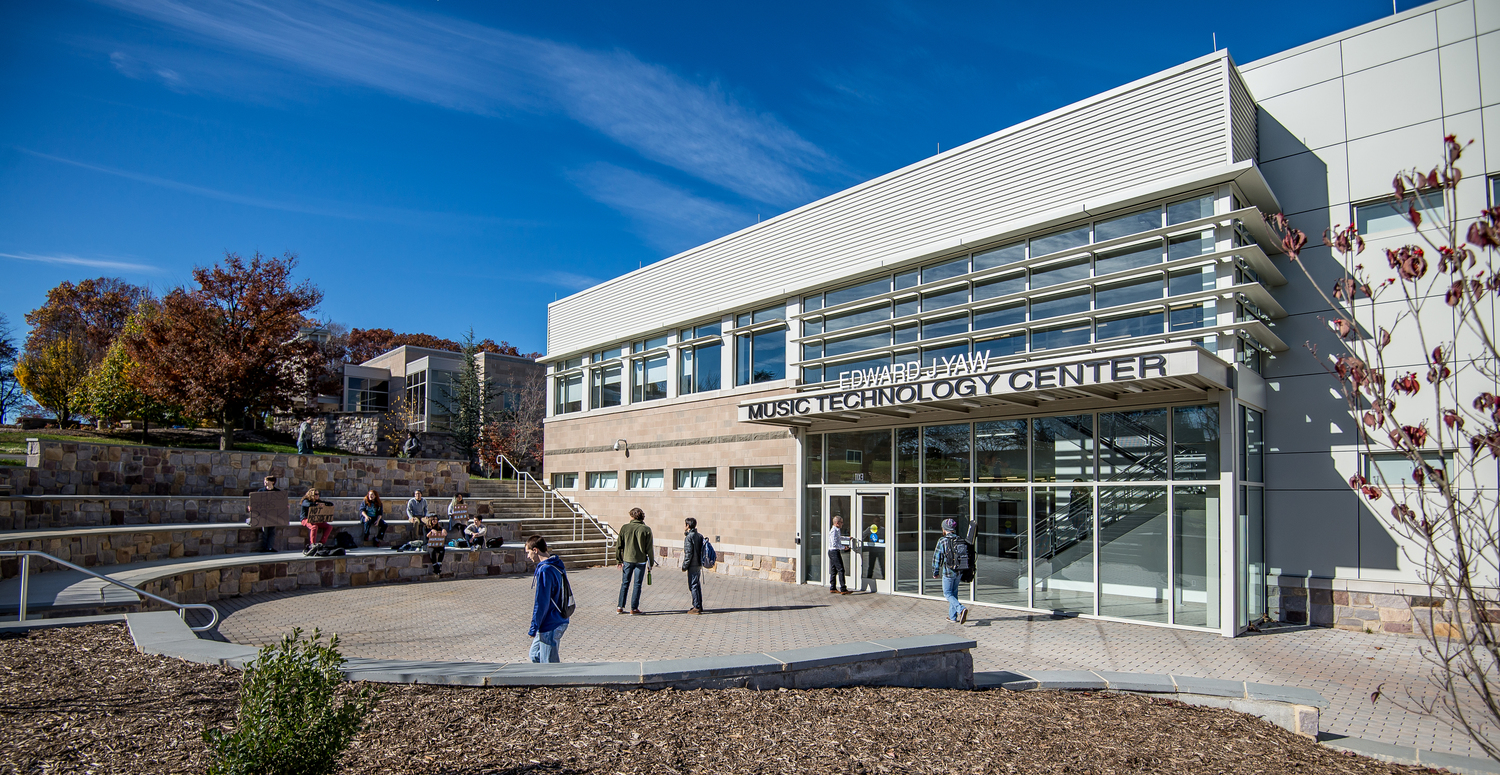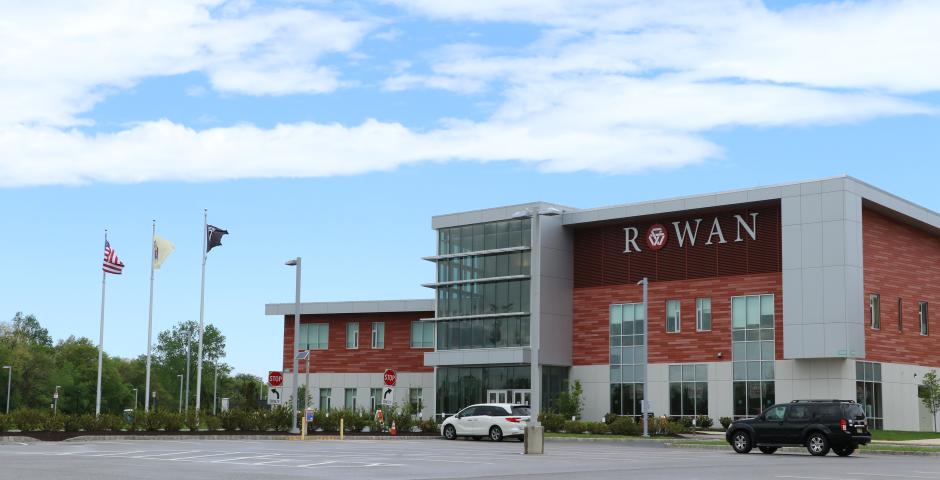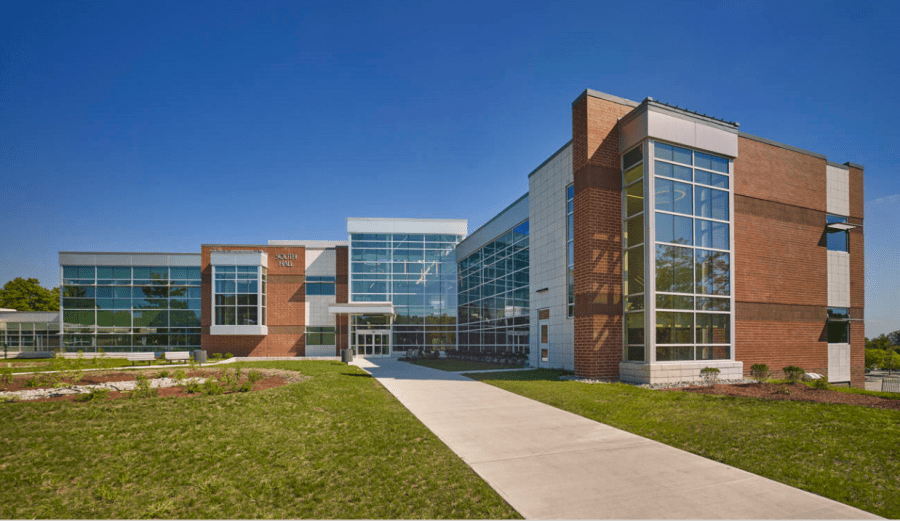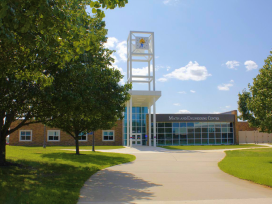NJCCC Testimony for Senate Oversight AI Hearing
Senate Legislative Oversight Hearing on Defining the
AI Landscape in New Jersey
Testimony of Aaron Fichtner, PhD
President, New Jersey Council of County Colleges
Monday, October 21, 2024 – 01:00 PM
Audio and video from the hearing will be archived here: NJ Legislature (state.nj.us)
Good afternoon, Chair Zwicker, Vice Chair Ruiz, and member of the Legislative Oversight Committee. I am Aaron Fichtner, President of the New Jersey Council of County Colleges, which supports robust, systemic collaboration, innovation, and efficiency across our state’s 18 public community colleges on a range of strategic, academic, workforce education, and operational issues.
Thank you for the opportunity to offer a New Jersey community college perspective on the impacts of AI for our students, our faculty and staff, our employer partners, and our communities.
Community colleges play a distinctly different role in higher education than our four-year college and university partners. Committed to equity, community colleges are driven by their unique role as anti-poverty, pro-economic mobility engines—helping all New Jerseyans have affordable access to high quality degrees and credentials that will empower them throughout their lives. We serve and support New Jerseyans from every geographic corner of the state—and at every stage of their academic, career, and life journeys. In addition to high school students, we educate older and working learners, student parents, refugees, immigrants, justice-impacted individuals, unemployed and underemployed individuals, individuals with disabilities, and veterans.
With our diverse student body in mind, at the outset of my remarks, I want to raise the question of AI equity. It is essential that New Jersey commits to providing the resources to ensure that AI tools and technologies are available and implemented in ways that enhance equity for low-income and traditionally marginalized populations—such as those who attend community colleges—rather than risk “amplifying unequal privilege” in higher education.
Decisive inequities in AI usage are already emerging. In September 2024, the National Bureau of Economic Research released data from the first nationally representative U.S. survey of generative AI adoption at work and at home. Generative AI usage is more common among younger, more educated, male, and higher-income workers. The survey found 32 percent of men use generative AI at work, but only 23 percent of women. Roughly 34 percent of workers under age 40 use genAI at work, but only 17 percent of workers age 50 and above. About 40 percent of workers with at least a bachelor’s degree use generative AI at work, but only 20 percent of those without a college degree. We must make deliberate efforts immediately, especially through our community colleges, to address these emerging inequities.
AI offers the prospect of radically changing how we educate and train our 240,000 students and how we prepare them for further academic and career success.
Community colleges currently play a pivotal role in the innovation economy, preparing New Jersey workers for emerging technologies in biotechnology, advanced manufacturing, computer science, autonomous vehicles, renewable energy, and other industries. We have developed deep and nimble employer partnerships that allow us to align programs to meet their needs, equipping our students with in-demand associate degrees and/or industry-valued credentials. We will build on this successful playbook in addressing employers’ AI workforce needs.
New Jersey’s community colleges are already developing important AI-focused opportunities. For example, County College of Morris is partnering with Intel and the Morris County Vocational School District to offer AI awareness and foundational skills to high school and community college students. Ocean County College is also partnering with Intel and now offers an AI option tied to an Associate in Applied Science in Computer Science degree. This is designed to expose community college students to AI applications in machine learning, computer vision, natural language processing, and neural networks, equipping them with applied AI skills that will be useful in medical, financial, manufacturing and other industries. There are many other examples.
Statewide, through the NJ Council of County Colleges, we are working to connect our institutions to a range of opportunities that will help ensure faculty and staff get the training they need in the AI era to support new AI programs for their students and employer partners.
- We are engaging with the AI Hub at Princeton University, including participating later this week in the Statewide AI Education and Workforce Convening.
- We are working with New Jersey’s Chief AI Strategist Beth Noveck to explore how we can offer paid work-based learning AI opportunities to community college students and how we can make AI training available to college faculty and staff.
- We are connecting our colleges to the newly launched NSF-funded National Applied Artificial Intelligence Consortium, a collaboration led by the three leading community colleges in the nation in AI – Miami Dade College, Houston Community College, and Maricopa County Community College District. The Consortium will provide guidance for community colleges in developing the education and training needed for a diverse and highly skilled technical workforce in the field of AI.
- We are planning an AI Innovation Corps that will connect leaders from our colleges with innovators in the field and provide them with space to design creative, problem-solving AI applications.
- Our Pathways to Career Opportunities Initiative is partnering with the Big Data Alliance to map out data science and AI curricula spanning K12, community college, and four-year colleges and universities.
For all that is exciting, new, and different about the genAI world we are currently navigating, I also call your attention to our recently released New Jersey’s Opportunity Agenda: Building Pathways to Equity and Economic Prosperity. Our agenda has four pillars we must urgently address if we are going to ensure success for our students. This includes:
- Expanding support for all high school students to access dual enrollment, tuition-free for students from low-income and underrepresented backgrounds.
- Supporting evidence-based approaches to student success, including mentoring; academic, personal, and career advising; addressing students’ basic needs, and expanding free community college to more students;
- Creating seamless transfer and stackable career pathways; and
- Rethinking the role of community colleges in workforce development and providing financial support for low-income students pursuing industry valued credentials.
We look forward to working with you, Chair Zwicker, Vice Chair Ruiz, and your colleagues in the legislature to advance a package of Opportunity Agenda bills. Achieving these priorities is foundational to our success in preparing our students for the world of AI.
In Pillar Three of our Opportunity Agenda, we emphasize the importance of the human, or “robot-proof” skills that we need every New Jerseyan to possess and our education systems to cultivate. These are often referred to as “durable” or “essential” skills; a list offered by a work force expert from LinkedIn recently defined them as the Five C’s: Curiosity, Compassion, Communication, Courage, and Creativity. Over time, AI is likely to outpace our technical abilities around many “hard” skills – writing code, conducting legal and financial analyses, and diagnosing diseases better and faster than we humans can do. The hope, however, is that these AI capacities will free up our time so we can spend more of it doing uniquely human things. New Jersey’s community colleges are making progress in preparing for this inevitability as well:
- NJCCC has an ongoing partnership with the NJ Council for the Humanities.
- Our academic affairs officers across the state are currently working together on reimagining general education needs.
- We have launched an Essential Skills Center of Workforce Innovation as part of our Pathways to Career Opportunities Initiative.
Thank you for the opportunity today to testify on behalf of our state’s 18 community colleges, and for your support for our colleges and our 240,000 students.








